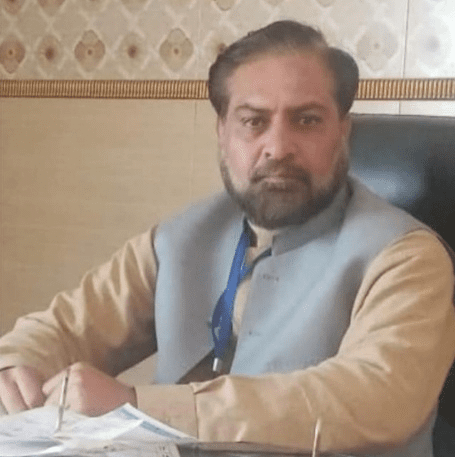Introduction
The ethics of Pakistan’s constitutions and an Islamic morality aid as the foundation for interfaith harmony, but there are some difficulties in the way of its actualization in daily life. Pakistan’s constitution particularly protects minority rights and their religious freedom, which redirects the country’s goal of a diverse society in which people of several faiths live in harmony and with respect. The knowledge about Islam, which had a strong status on justice, sympathy, and protection for every person as well as religious minorities can support this constitutional foundation. These epitomes are still prevented from completely materializing in practice by social biases, denominational clashes, and the unevenness application of law. To indorse durable interfaith existence, these matters must be addressed through changes in civic awareness, education, and law implementation.
Constitutional Protections for Religious Minorities
The Constitution of Pakistan suggests a stout foundation for defending religious minorities’ rights. Article 20 highlights the state’s obligation to religious freedom for all inhabitants, irrespective of faith, by openly ensuring the freedom to admit, practice, and propagate one’s religion. Likewise, while Article 33 allocates the government the responsibility of discouraging religious preconceptions, Article 25 needs equivalence before the law and also forbids perception based on religion. These articles support the legal credit and defence of minority rights, even in the aspect of Islam’s description as the state-owned religion under Article 2. At variance, requirements that give superiority to Islamic teachings can confound the consistent implementation of minority protections. Minorities are commonly left susceptible by this irregular enforcement in reality, underscoring the need for greater institutional liability to fairly uphold constitutional promises.

Islamic Perspective on Peaceful Coexistence
Islam provides substantial direction for nonviolent interfaith relations and practices the foundation stone of Pakistan’s religious beliefs. The Quran orders believers to
“And speak kindly to people.” (Surah Al-Baqarah 2:83)
and also narrates that
“Allah does not forbid you from being kind and just towards those who have not fought you for your faith or driven you out of your homes. Indeed, Allah loves those who act justly.” (Surah Al-Mumtahina 60:8).
Teachings from the Prophet Muhammad advocate that
“Whoever oppresses a non-Muslim citizen (dhimmi), undermines his rights, burdens him beyond his capacity, or takes something from him against his will, I will be his opponent on the Day of Judgment.” (Sunan Abu Dawood, Hadith 3052).

The society where many faith communities lived peacefully was nurtured by the Charter of Madina, which historically recognized a standard for religious independence and multiplicity. In Pakistan’s multireligious setting, these values provide not only moral guidelines but also a workable example of interfaith harmony.
Socio-political Causes of Interfaith Harmony
Historical, social, and political factors in Pakistan often combine to root interfaith pulls. Deficiency of public awareness and stumpy civic knowledge have contributed to long-standing prejudgments and pigeonholes against religious minorities. Occasionally strengthened by fundamental tales that misunderstand spiritual canons, sectarianism and religious vigilantism contribute to distrust and hatred. In addition, the side lining of minorities is made worse by institutional and legal inadequacies, such as insufficient safety measures against hate speech and unfair practices. Political manipulation of religious identities is another factor, which contributes to the rise of religious divergence, eroding social cohesiveness. These dynamics undermine the unity anticipated by the Constitution and obstruct interfaith understanding.
Collective Determinations for Countering Hate and Discrimination
Numerous legal institutions, civil society, and sacred leaders must work collectively on interfaith harmony. To prevent prejudice and hate crimes, the courts and law enforcement must successfully implement constitutional safeties. A common commitment to peace can be adopted by involving religious specialists from different communities in joint censures of intolerance, such as the fatwa against terrorism issued by Paigham-e-Pakistan. By supporting interfaith discussions, neighborhood get-togethers, and awareness campaigns that settle detachments and expose myths, civil society organisations have to play a vital role. Through consistent advocacy and education, this triple alliance can create an atmosphere where tolerance for religious diversity is accepted and hate speech is actively opposed.

Suggestions: Educational and Media Reforms to Foster Harmony
The media and the educational system are crucial for raising civic heterogeneity and interfaith tolerance. Many times, the current set of courses supports stereotypes rather than promoting understanding of religious assortment. Media vents should hold responsible reporting standards that highlight stories of cohabitation and challenge half-truths. Educational reforms that integrate interfaith studies, give emphasis to Universal human rights and the common ethical values derived from Islam, can cultivate empathy and tolerance from an early age. Inherited favoritisms can be demolished by normalizing interfaith discussion at the local level, especially among young individuals in schools and communities. It is necessary for long-term societal alteration and genuinely equal citizenship to engage youth in structured counter-narratives against disruptive myths.
Conclusion
Interfaith harmony in Pakistan is deeply rooted in the constitution and maintained by Islamic moral values that support justice, kindness, and tolerance for all religions. Still, achieving these goals demands overcoming social biases, boosting the rule of law, and promoting public awareness via broadcasting and education. Pakistan can become closer to the goal of a peaceful, multicultural society where all citizens, regardless of their religion, enjoy equality, security, and dignity by accepting these policies and encouraging collaboration between state institutions, religious leaders, and civil society. This is crucial for maintaining national unity as well as for realizing Pakistan’s original goal of being a place where various communities can live peacefully.
Disclaimer: The views and opinions expressed in this article are exclusively those of the author and do not reflect the official stance, policies, or perspectives of the Platform.








